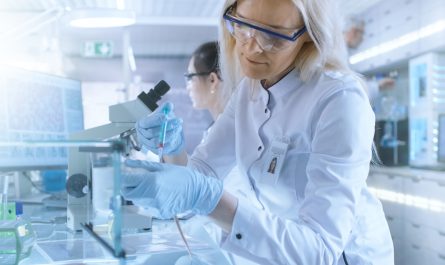Veterinary medicine plays an important role in public health and animal welfare. Veterinarians treat a wide range of species from companion animals like dogs and cats to farm animals like cows and chickens. The field of veterinary medicine continues to evolve to meet the needs of both animals and society.
History and Evolution of Veterinary Medicine
One of the earliest known writings on veterinary medicine dates back to around 3000 BC in Mesopotamia. However, it was not until 1761 that the first veterinary school was established in Lyon, France. In the late 18th and 19th centuries, veterinary medicine began focusing more on domestic animals as agriculture became increasingly industrialized. Scientists like Edward Jenner in the late 1700s helped lay the foundation for modern vaccinology and disease prevention through his pioneering work on vaccines for smallpox in humans and eventually farm animals.
As animal husbandry and commerce expanded in the 20th century, more veterinary colleges opened around the world. During the two World Wars, veterinarians played a key support role in military operations by caring for war animals and horses. With advances in medical technology after World War II, surgery and intensive care became major components of veterinary practice. More recently, veterinary medicine has seen rapid growth in specialization areas like oncology, ophthalmology, dermatology, sports medicine and rehabilitation.
Role of Veterinarians in Public Health
Besides caring for the health of individual animals, veterinarians play an important role in protecting public health. Many infectious diseases can spread between animals and humans, known as zoonotic diseases. Rabies is one example where veterinarians vaccinate domestic animals to prevent human transmission. Veterinarians also work closely with public health agencies to monitor and control outbreaks of zoonotic influenza viruses like bird flu. They help ensure our food supply remains safe by inspecting slaughterhouses and dairy farms for signs of disease. Research by veterinary scientists leads to new vaccines that benefit both human and animal health. Overall, public health depends on veterinarians to minimize infectious disease threats at the human-animal interface.
Companion Animal Careers
For many veterinarians, careers center around caring for companion animals like dogs and cats. These professionals work in small animal primary care practices providing wellness exams, vaccinations, surgery and other routine care. Specialization options within companion animal medicine include fields like cardiology, oncology and ophthalmology for advanced diagnostic testing and treatments. Emergency and critical care has also grown significantly to better handle trauma cases and acute medical issues after hours. With rising pet ownership, there is high demand for veterinary services to keep companions healthy and prolong their lifespans through advances in veterinary medicine.
Food Animal Agriculture
Another large sector of veterinary medicine focuses on food production animals such as cattle, pigs, poultry and fish. Food supply veterinarians work to optimize animal health and welfare on farms and in intensive livestock operations. They monitor for infectious diseases and treat sick animals to minimize economic losses from illness and mortality. Food animal veterinarians also contribute to public health by ensuring food animals remain free of pathogens and drug residues that could contaminate meat, eggs and dairy products intended for human consumption. Through epidemiological investigations and preventative herd health programs, they help farmers proactively address emerging diseases and maintain antibiotic stewardship on farms.
Global Trends and the Future of the Profession
While veterinary opportunities are growing, in many countries there remains a shortage of qualified professionals. Globalization and increased travel and trade have given diseases the potential to emerge and spread faster on a worldwide scale. This emphasizes the continued need for well-trained veterinarians that can respond to complex domestic and foreign animal health issues with international implications. Climate change and encroachment on wildlife habitat also threaten to expose new pathogens to both animals and humans. Emerging fields like conservation medicine, wildlife health and ecological veterinary public health will be important to mitigate these risks. With medical technologies also advancing rapidly for animals, veterinary specialization and collaborative “one health” approaches between animal, human and environmental areas of medicine will evolve further in service of population health. The profession of veterinary medicine remains dynamic in efforts to address complex challenges at the animal-human-ecosystem interface now and into the future.
In conclusion, veterinary medicine plays an indispensable role caring for animals and protecting public welfare. From disease prevention and food safety to epidemiology, research and advanced companion animal care, veterinarians promote health across many species from small animals to wildlife. As threats emerge at the human-animal interface and veterinary services are still needed globally, the important responsibilities of the veterinary profession show no signs of diminishing. With continued innovation and collaboration, veterinary medicine will remain essential for public health, agriculture and animal well-being.

